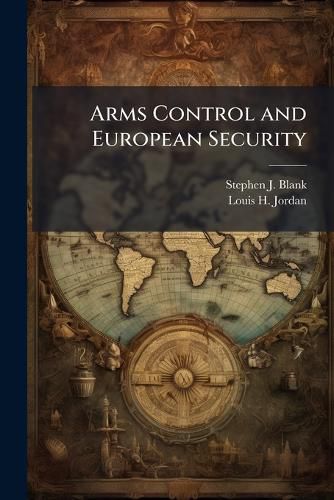Readings Newsletter
Become a Readings Member to make your shopping experience even easier.
Sign in or sign up for free!
You’re not far away from qualifying for FREE standard shipping within Australia
You’ve qualified for FREE standard shipping within Australia
The cart is loading…






The following three papers comprise one of the panels from a conference on U.S.-Russia relations that SSI co-sponsored with the Carnegie Council at Pocantico, NY, from June 1-3, 2011: Carnegie Council's Program on "U.S. Global Engagement: A Two-Year Retrospective." The papers offer three contrasting looks at one of the major issues in today's arms control agenda, namely the future of the Conventional Forces in Europe Treaty (CFE). The three papers were written by leading experts in the field from the United States, the United Kingdom, and Russia and provide a revealing glimpse into the very different assessments that are being made by those three governments and the difficult issues involved in attempting to regenerate the process that led to the original treaty in 1990. These three chapters also implicitly contribute to a better understanding of the intractabilities facing the major players in any effort to advance not only arms control but also European stability.
This work has been selected by scholars as being culturally important, and is part of the knowledge base of civilization as we know it. This work was reproduced from the original artifact, and remains as true to the original work as possible. Therefore, you will see the original copyright references, library stamps (as most of these works have been housed in our most important libraries around the world), and other notations in the work.
This work is in the public domain in the United States of America, and possibly other nations. Within the United States, you may freely copy and distribute this work, as no entity (individual or corporate) has a copyright on the body of the work.
As a reproduction of a historical artifact, this work may contain missing or blurred pages, poor pictures, errant marks, etc. Scholars believe, and we concur, that this work is important enough to be preserved, reproduced, and made generally available to the public. We appreciate your support of the preservation process, and thank you for being an important part of keeping this knowledge alive and relevant.
$9.00 standard shipping within Australia
FREE standard shipping within Australia for orders over $100.00
Express & International shipping calculated at checkout
Stock availability can be subject to change without notice. We recommend calling the shop or contacting our online team to check availability of low stock items. Please see our Shopping Online page for more details.
The following three papers comprise one of the panels from a conference on U.S.-Russia relations that SSI co-sponsored with the Carnegie Council at Pocantico, NY, from June 1-3, 2011: Carnegie Council's Program on "U.S. Global Engagement: A Two-Year Retrospective." The papers offer three contrasting looks at one of the major issues in today's arms control agenda, namely the future of the Conventional Forces in Europe Treaty (CFE). The three papers were written by leading experts in the field from the United States, the United Kingdom, and Russia and provide a revealing glimpse into the very different assessments that are being made by those three governments and the difficult issues involved in attempting to regenerate the process that led to the original treaty in 1990. These three chapters also implicitly contribute to a better understanding of the intractabilities facing the major players in any effort to advance not only arms control but also European stability.
This work has been selected by scholars as being culturally important, and is part of the knowledge base of civilization as we know it. This work was reproduced from the original artifact, and remains as true to the original work as possible. Therefore, you will see the original copyright references, library stamps (as most of these works have been housed in our most important libraries around the world), and other notations in the work.
This work is in the public domain in the United States of America, and possibly other nations. Within the United States, you may freely copy and distribute this work, as no entity (individual or corporate) has a copyright on the body of the work.
As a reproduction of a historical artifact, this work may contain missing or blurred pages, poor pictures, errant marks, etc. Scholars believe, and we concur, that this work is important enough to be preserved, reproduced, and made generally available to the public. We appreciate your support of the preservation process, and thank you for being an important part of keeping this knowledge alive and relevant.